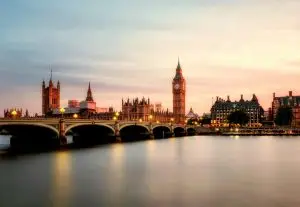The ministerial team for the Department for Energy Security and Net Zero (DESNZ) has now been finalised. The team brings together a range of parliamentary and professional experience and are tasked with delivering Labour’s most ambitious aim for Government, delivering a clean energy system by 2030.
Below, Brevia Energy provides an overview of the newly appointed DESNZ ministers, their backgrounds, and the policy decisions they will be facing as part of their new roles.
Brevia Energy offers a team of experienced energy consultants that provide straightforward public affairs and public relations support to companies and charities operating in the energy sector.
The Rt Hon Ed Miliband MP – Secretary of State for Energy Security and Net Zero
Former Labour Leader Ed Miliband MP returns to a familiar role, having served as Energy Secretary under Gordon Brown’s premiership. He previously played a leading role in passing the Climate Change Act (2008) which not only set a target of 80% emission reduction by 2050, but also established the Climate Change Committee and legally bound the Government to meeting carbon budgets..
Industry will welcome the progress that the Energy Secretary is already demonstrating in delivering Labour’s 2030 clean power mission. Since taking office, he has ended the de facto ban on onshore wind in England, approved three large-scale solar farms, and appointed former Climate Change Committee CEO Chris Stark to lead the new Mission Control, tasked with ensuring that the UK meets its 2030 clean energy target. His swift actions have garnered praise from the green industry but have also stirred some criticism over the pace of his decisions, particularly on more contentious issues around planning.[1]
Upon taking office the Energy Secretary wrote to civil servants in the Department, setting out his main priorities for DESNZ:
- Deliver clean power by 2030 and boost energy independence
- Establish Great British Energy
- Upgrade homes and cut fuel poverty through the Warm Homes Plan
- Reform the energy system
- Create jobs in the industrial heartlands, and ensure a just transition for North Sea industries
- Lead on international climate action.
Sarah Jones MP – Minister of State (Joint DESNZ and DBT)
Minister for Industry
Member for Croydon West Sarah Jones MP will serve as Minister of State across both DESNZ and the Department for Business and Trade (DBT), focusing on heavy industry and decarbonisation. Her brief demonstrates the Government’s recognition of the role that industrial decarbonisation will play in delivering Net Zero by 2050, as well as the integration of energy policy across departments. Her cross-departmental role shows the government’s commitment to avoiding silos and encouraging departmental collaboration.
The Minister’s brief comes with no shortage of challenges, including the future of the steel industry in the UK. As a Shadow Minister, Jones was vocal in her support for safeguarding the future of the UK’s steel industry, along with ensuring a smooth transition of oil and gas skills to renewable energy.[2]
Prior to joining Parliament, Jones worked in senior communications and public affairs roles for organisations like housing charity Shelter and the NHS Confederation. She was also member of the Civil Service team that delivered the London 2012 Olympic and Paralympic Games.
The Rt Hon Lord Hunt of Kings Heath OBE – Minister of State
Lords Minister; Minister for Energy Security and Net Zero
Labour peer Lord Hunt will serve as the Department’s Lords Minister. Having held ministerial roles across the Department of Energy and Climate Change (DECC), Department for Environment, Food and Rural Affairs, and the Department of Health, Lord Hunt brings extensive experience from within Government – something which will be valuable given the relatively new faces in the Department. Hunt also has experience working with the Energy Secretary Ed Miliband, having served as a Minister under his leadership of DECC from 2008 – 2010.
Hunt’s new brief will include nuclear energy, an area where the Labour Government inherits the responsibility of securing a final investment decision for Sizewell C, as well as taking forward the Small Modular Reactors (SMRs) competition.
Prior to entering the House of Lords in 1997, Lord Hunt held a number of senior executive and directorial roles within the health sector, including as the first CEO of the NHS Confederation. He was awarded an OBE in the 1993 Birthday Honours for his services to the NHS.
Kerry McCarthy – Parliamentary Under-Secretary of State
Minister for Climate
Kerry McCarthy has been the MP for Bristol East since 2005. McCarthy originally entered the Labour Shadow Cabinet in 2010 under the leadership of Ed Miliband. Her background includes serving as the Shadow Green Transport Minister from 2020 – 2021 and then the Shadow Climate Change Minister from June 2022 until the 4 July General Election.
McCarthy’s new role is Minister for Climate, and her brief includes oversight of international policy and strategy, in addition to trade, net zero investment and supply chains. Her previous background as the Shadow Secretary of State for Environment, Food and Rural Affairs from 2015-2016 means she will likely provide a key voice for nature-based solutions to tackling climate change.
Prior to entering politics, McCarthy qualified as a solicitor and was a Director of London Luton Airport from 1999 – 2003.
Michael Shanks MP – Parliamentary Under-Secretary of State
Minister for Energy
Another relatively new MP, Michael Shanks was elected for the first time in the Rutherglen and Hamilton by-election in October 2023. Prior to Parliament, Shanks worked as a teacher, and was involved in local politics.
One month after his election, Shanks was appointed shadow Scotland Minister. Hailing from Glasgow, and serving as the MP for a constituency close to the city, his responsibility for Great British Energy (GB Energy) means that the company will be both headquartered in Scotland and overseen by a Scottish MP. He has previously spoken in favour of GB Energy and its positive impact on Scotland in the capacity of his former role as shadow Scotland Minister.
In addition to responsibility for GB Energy, Shanks’ portfolio includes renewables, the grid and energy systems, energy security, and energy market reform, meaning he will be dealing with the some of the tough questions outstanding on REMA, as well as overseeing the implementation of the Winser Review.
Miatta Fahnbulleh – Parliamentary Under-Secretary of State
Minister for Energy Consumers
Newly elected MP for Peckham Miatta Fahnbulleh may seem a surprise addition to the DESNZ team; however, her economic background makes her a sensible choice for taking on the consumer brief within the Department. Formerly the CEO of the New Economics Foundation and current Director of Policy and Research at the IPPR, her economic expertise will be much valued as she takes on responsibility for energy consumer issues, tackling fuel poverty as well as the future of the energy price cap.
Fahnbulleh also has experience working with Ed Miliband, as well as with the Deputy Prime Minister Angela Rayner MP, having spent time as a senior economic advisor to both prior to and during the election campaign.
Parliamentary Private Secretaries
Supporting Ed Miliband and his team are two newly elected MPs, Katie White MP for Leeds North West, and Chris McDonald MP for Stockton North. While both are new faces to Parliament, they hold substantial experience when it comes to working within the energy sector.
Katie White MP brings a broad background in international climate change engagement and public advocacy, having worked as Director for Campaigns and Advocacy at WWF, as well as previously working with Ed Miliband at DECC in roles including the Head of International Climate Change Engagement from 2010 – 2012. White was awarded an OBE in 2013 for her services to climate change engagement both in the UK and internationally. Many organisations, including the Climate Change Committee, have highlighted the need to better engage with the public regarding reaching Net Zero by 2030, meaning White could be a crucial advisor in securing public buy-in for the Government’s clean power ambitions.[3]
Chris McDonald MP offers an industrial perspective, having a had a lengthy career working as the CEO of the Materials Processing Institute, an innovation institute focussing on issues including steel and low carbon energy. McDonald will provide a nuanced understanding of the UK steel industry. His experience of Tata Steel, from which the Materials Processing Institute divested in 2014, may provide a useful perspective as the Government attempts to reach a satisfactory settlement with the company regarding its Port Talbot Steelworks.
BREVIA ENERGY PROVIDES STRAIGHTFORWARD PUBLIC AFFAIRS AND PUBLIC RELATIONS SUPPORT TO ORGANISATIONS OPERATING IN THE UK ENERGY SECTOR.
Discover how Brevia Energy can help you and your organisation by visiting: www.brevia.co.uk/sectors/energy/. You can also contact the Brevia Energy Team on 020 7091 1650 or email contact@brevia.co.uk
NOTES
[1] ‘Government’s approval of energy farm reveals agenda’, 14 July 2024, BBC, Link
[2] Floating Offshore Wind debate, Westminster Debate, 16 November 2023, Link
[3] ‘The role of deliberative public engagement in climate policy development: a report for the Climate Change Committee’, Climate Citizens and Lancaster University, September 2022, Link




